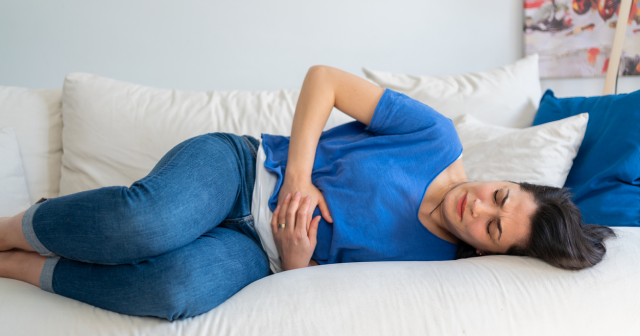There's a lot of misinformation about hormone replacement therapy (HRT). While there are some risks, many women find it dramatically eases their menopause symptoms.
HRT tops up the low levels of the hormones oestrogen and progesterone caused by the menopause. This helps to alleviate the symptoms of the menopause. Because oestrogen is important for healthy bone growth, HRT can protect a woman's bones from osteoporosis while she is having the treatment.
The benefits of HRT include:
- relief from hot flushes
- less vaginal dryness, bladder leaks and recurrent urinary tract infections
- better sex drive
- reduced risk of bone fractures associated with osteoporosis
- reduced risk of bowel cancer
However, there can be drawbacks. HRT slightly raises your chance of developing the following conditions:
A large number of medical studies, conducted between 2000 and 2004, looked at HRT and the major health problems faced by postmenopausal women. These studies received a lot of negative publicity, resulting in some women being reluctant to use HRT.
While there are risks, most experts now agree that if HRT is used on a short-term basis for no more than 5 years, the benefits outweigh any risks.
Find out about the risks of HRT.
How to get started on HRT
If you're interested in taking HRT, discuss the risks and benefits with your doctor.
In some circumstances, your doctor will want you to see a menopause specialist before prescribing HRT. This is the case if you have had a hormone-dependent cancer, such as breast cancer or cancer of the womb, or if you've had a blood-clotting condition, such as angina or a heart attack . The specialist can advise you on whether HRT is right for you.
Common HRT myths
Below are some of the common misconceptions about HRT, and the facts you need to make up your own mind.
'HRT makes you gain weight'
Many women believe that taking HRT will make them put on weight, but there is no evidence to support this claim.
Women tend to gain a little weight around the menopause regardless of whether they take HRT or not.
Exercising regularly and eating a healthy diet should help you to lose any unwanted weight.
'I've tried HRT and it didn't work'
There are over 50 different types of HRT. They can be taken in a number of different ways, including orally as a tablet and through the skin as patches or gels. Try different types to find one that suits you.
'If I'm on HRT, I can't get pregnant'
You can still get pregnant when taking HRT. It is not a contraceptive. Therefore, you should continue to use contraception for 2 years after your last period if you are under the age of 50 or for 1 year after the age of 50.
'If I've had a hysterectomy, I don't need HRT'
This is not necessarily true. The best HRT if you've had a total hysterectomy (removal of the whole womb, including the cervix) is oestrogen alone. Combined HRT, which contains oestrogen and progestogen, does not have any added benefit and may increase your risk of breast cancer.
If you've had a partial hysterectomy, you may still have some womb lining present. Because of this, you should take combined HRT.
Read more about hysterectomy.
'Complementary therapy is a safer alternative'
Some herbal remedies, such as soya and red clover, contain natural oestrogens, but HRT is also largely derived from phyto-oestrogens.
There's no firm medical evidence that the many complementary therapies available for the menopause are effective. They can have unpleasant side effects, interfere with other medications and can be potentially harmful.
Ask your doctor for more information on whether you can take herbs for HRT and, if so, what the risks and benefits are.





